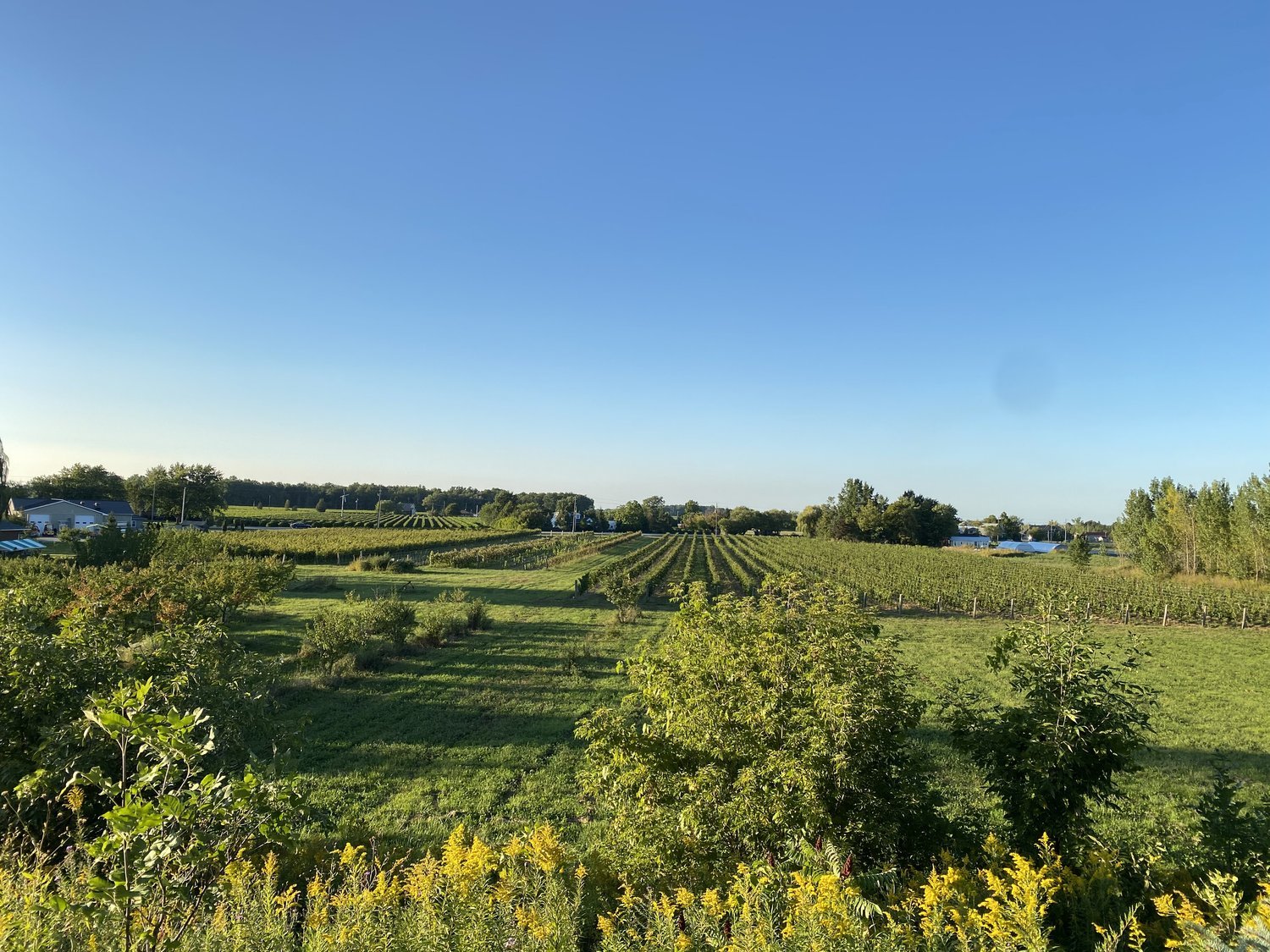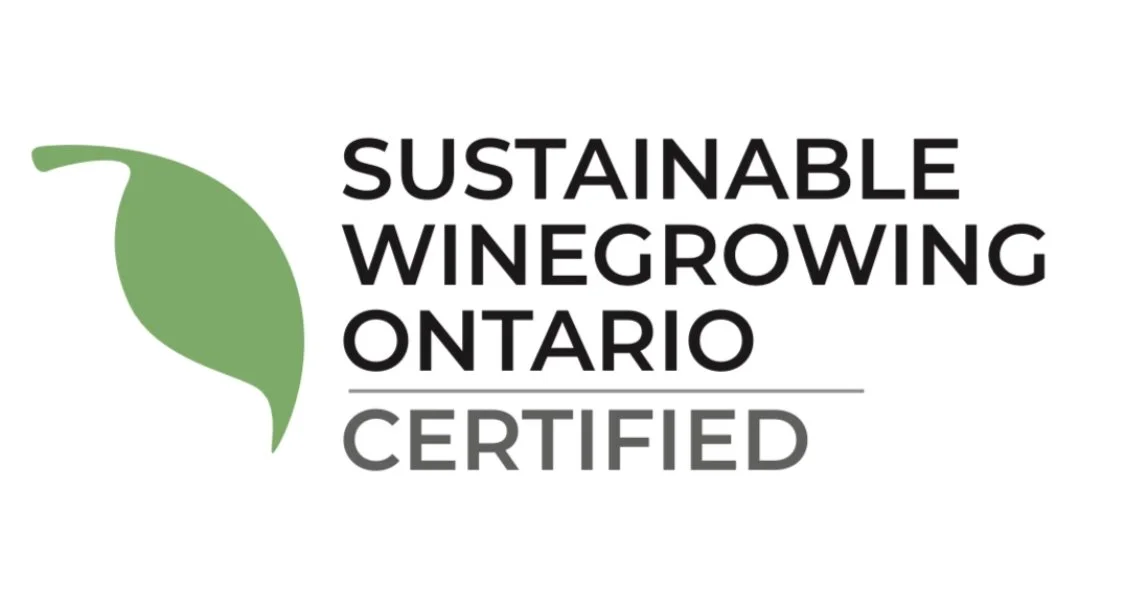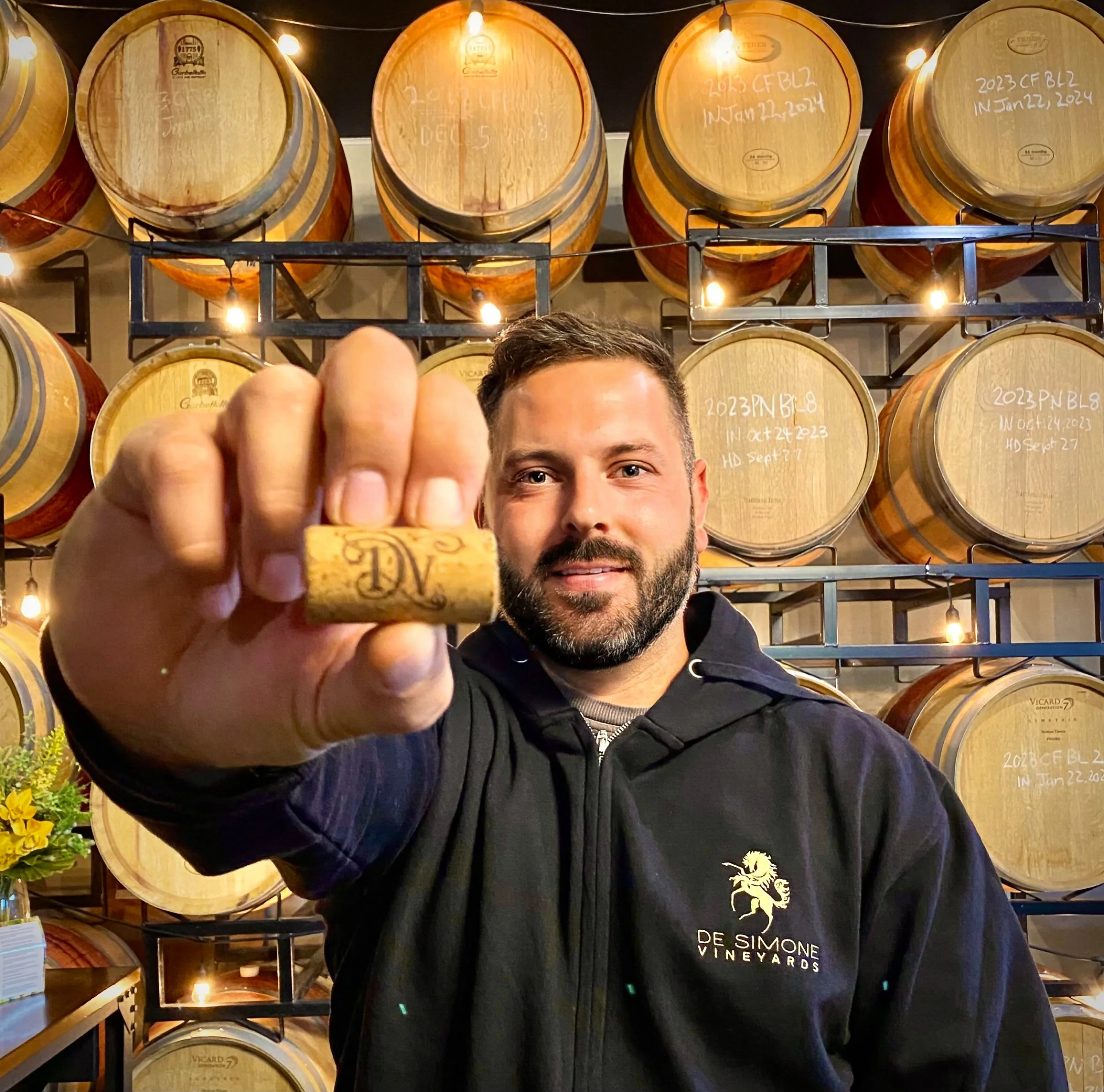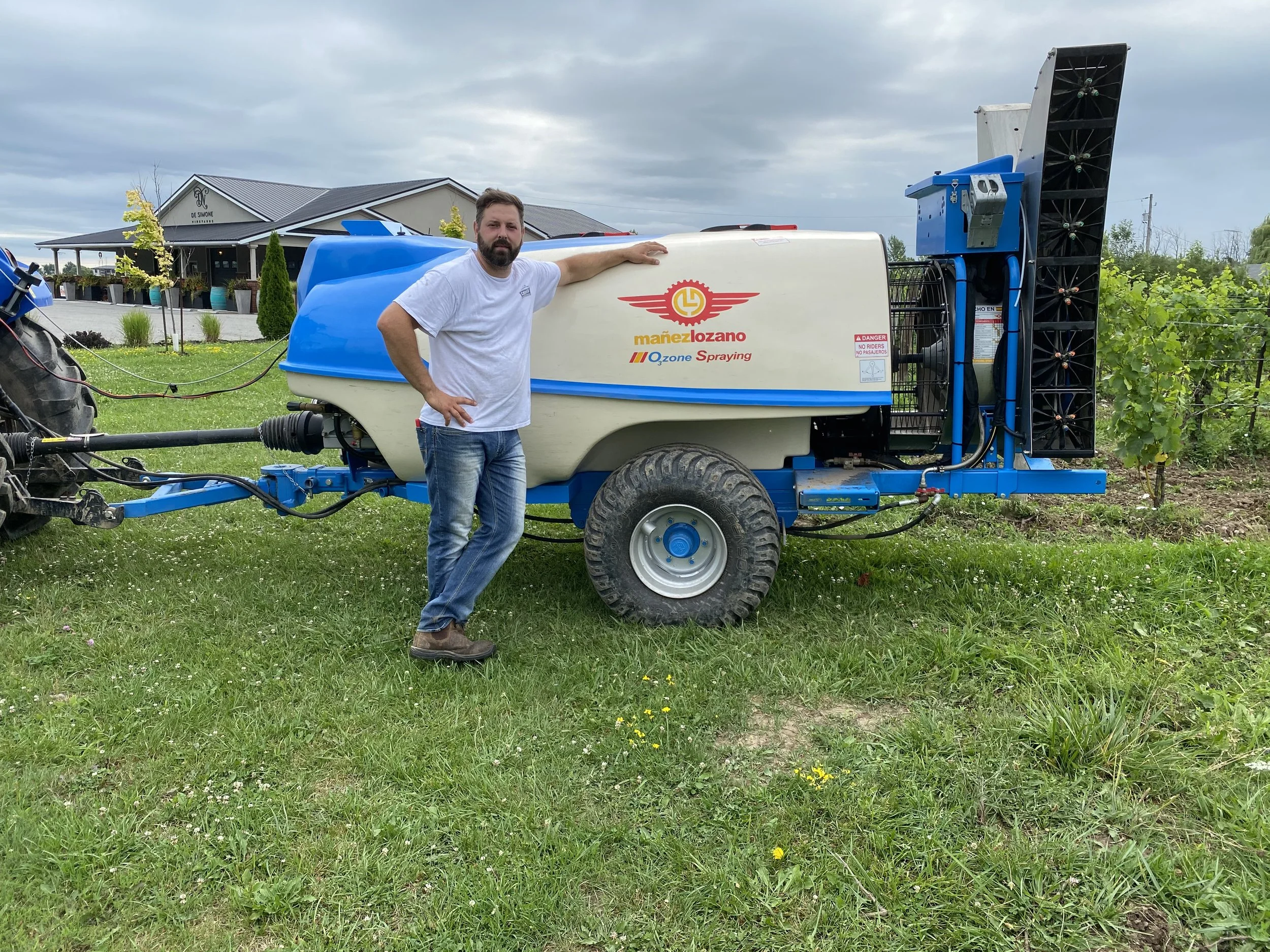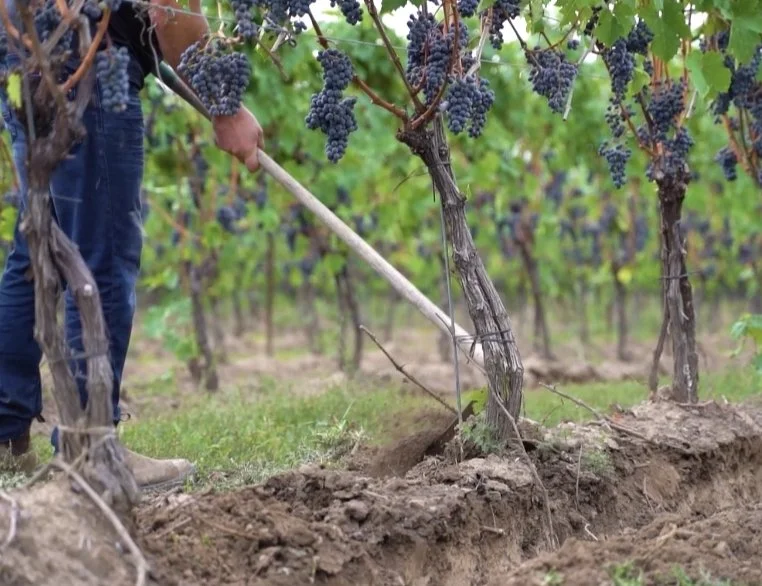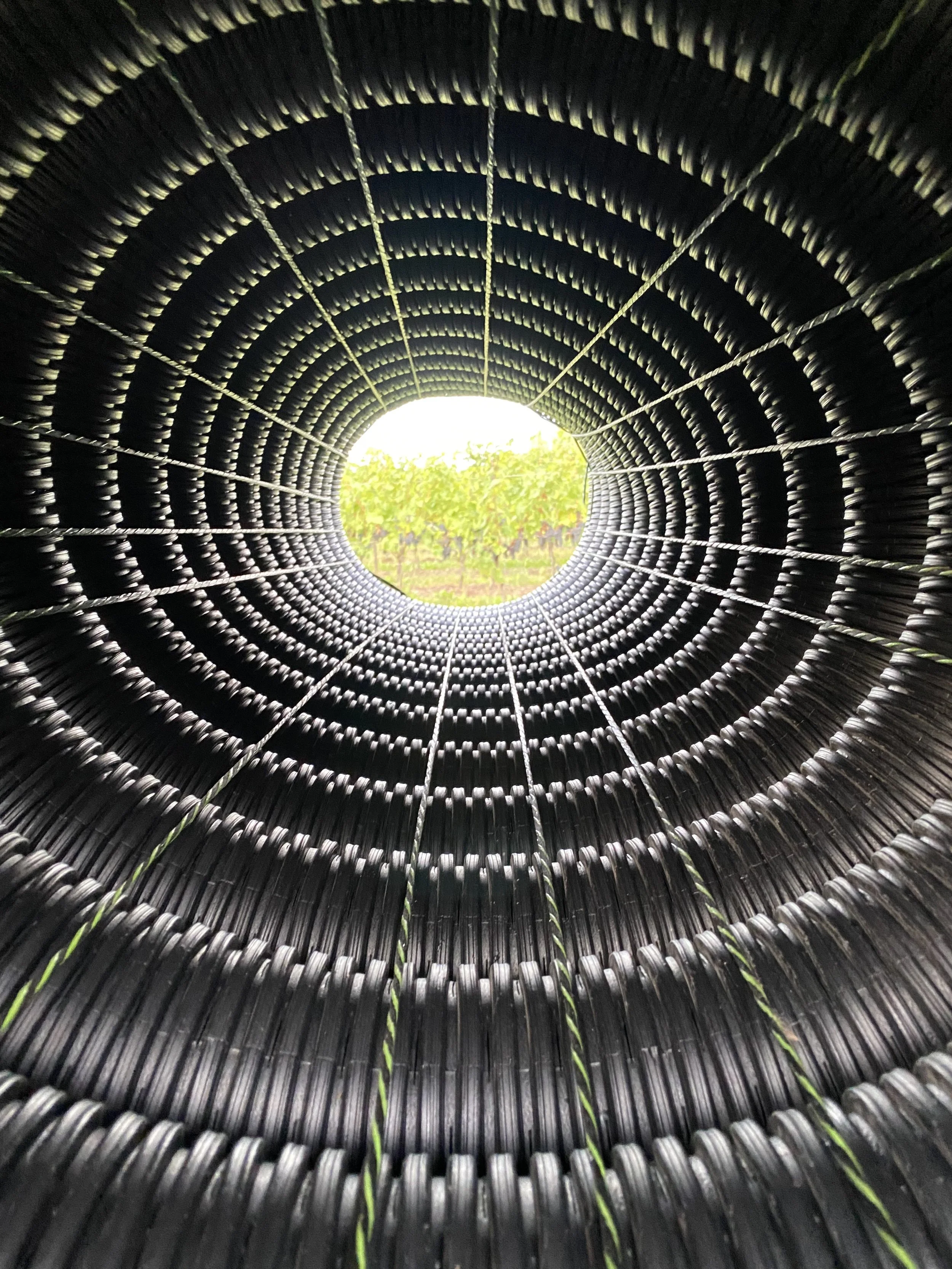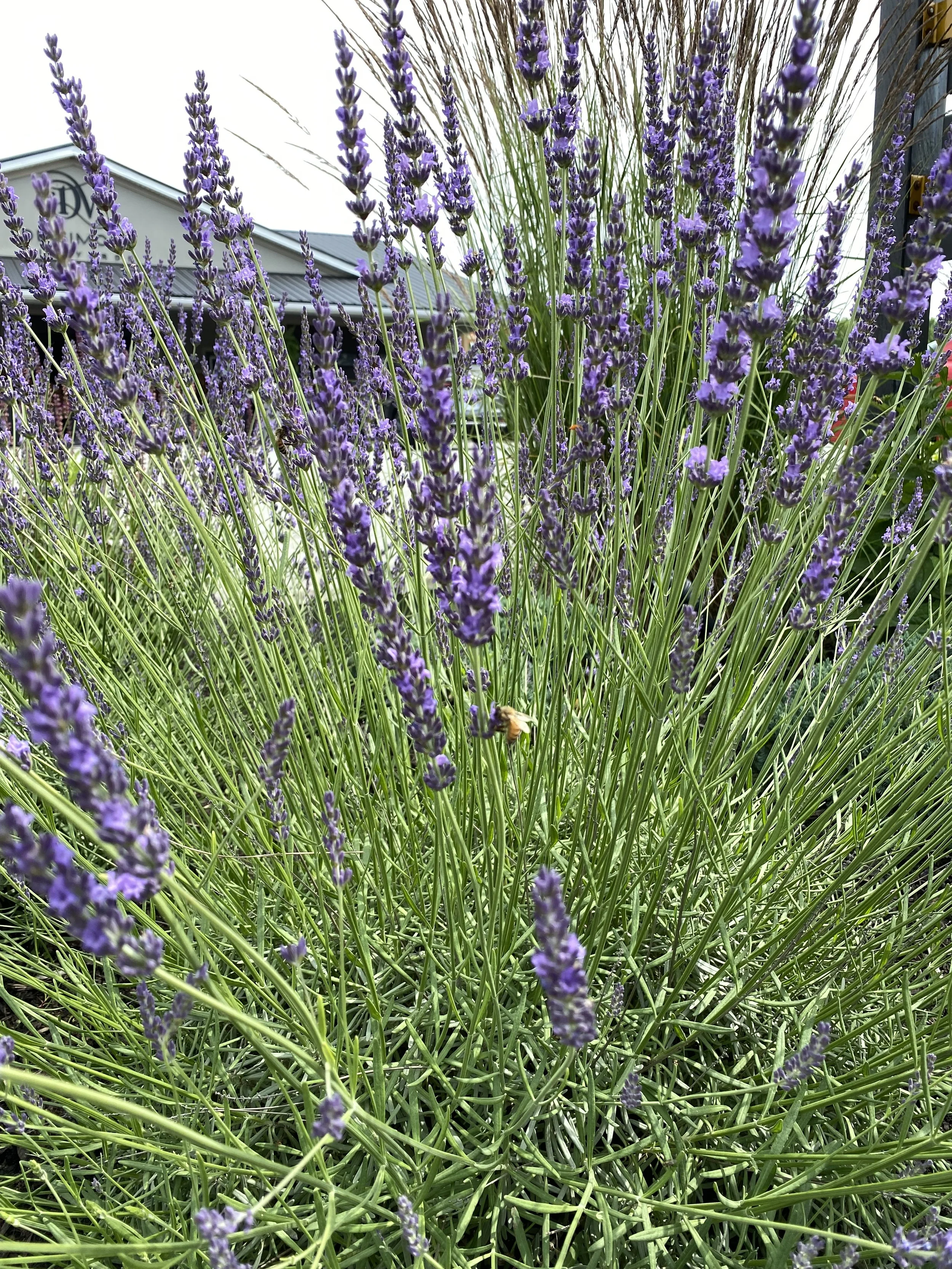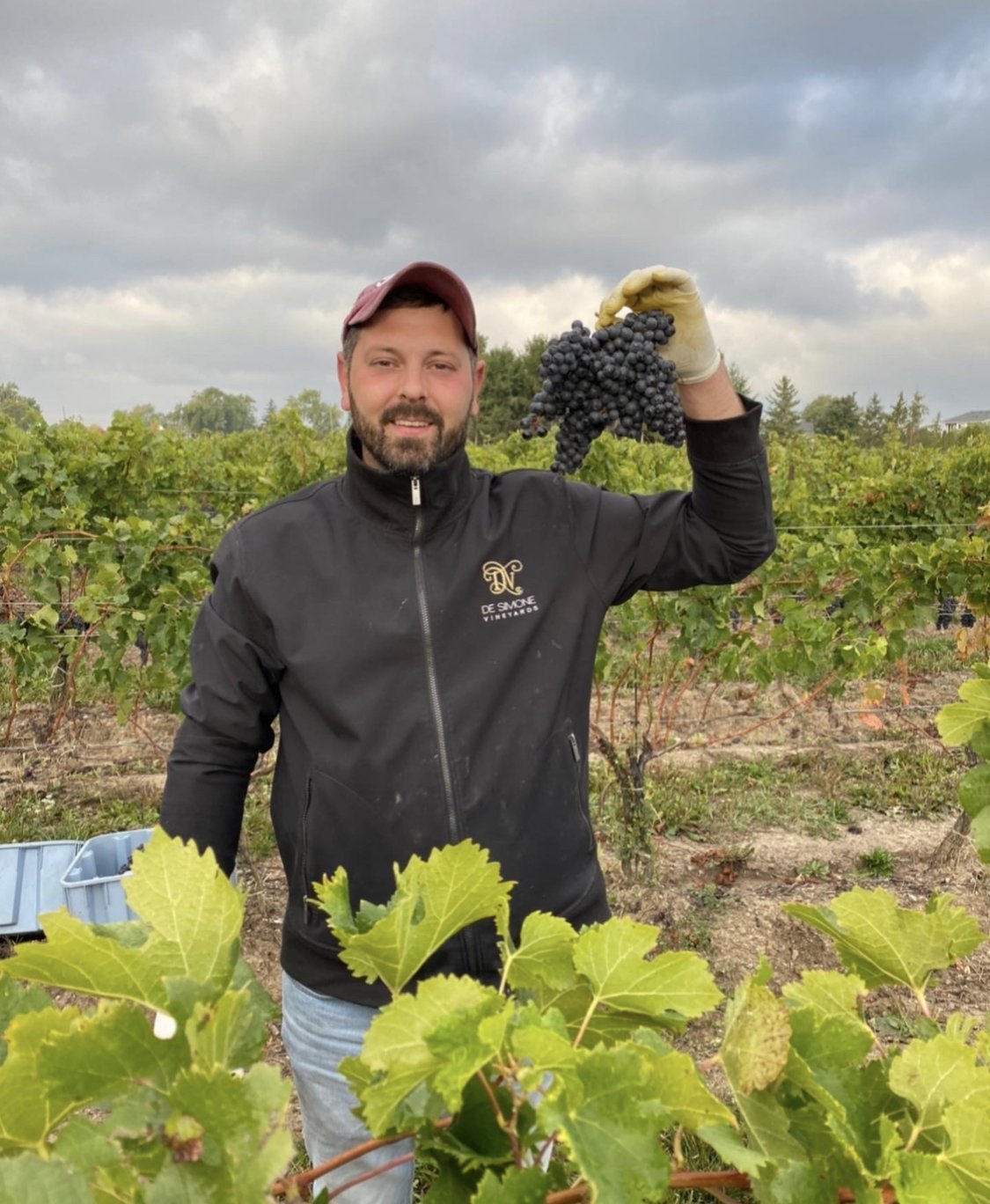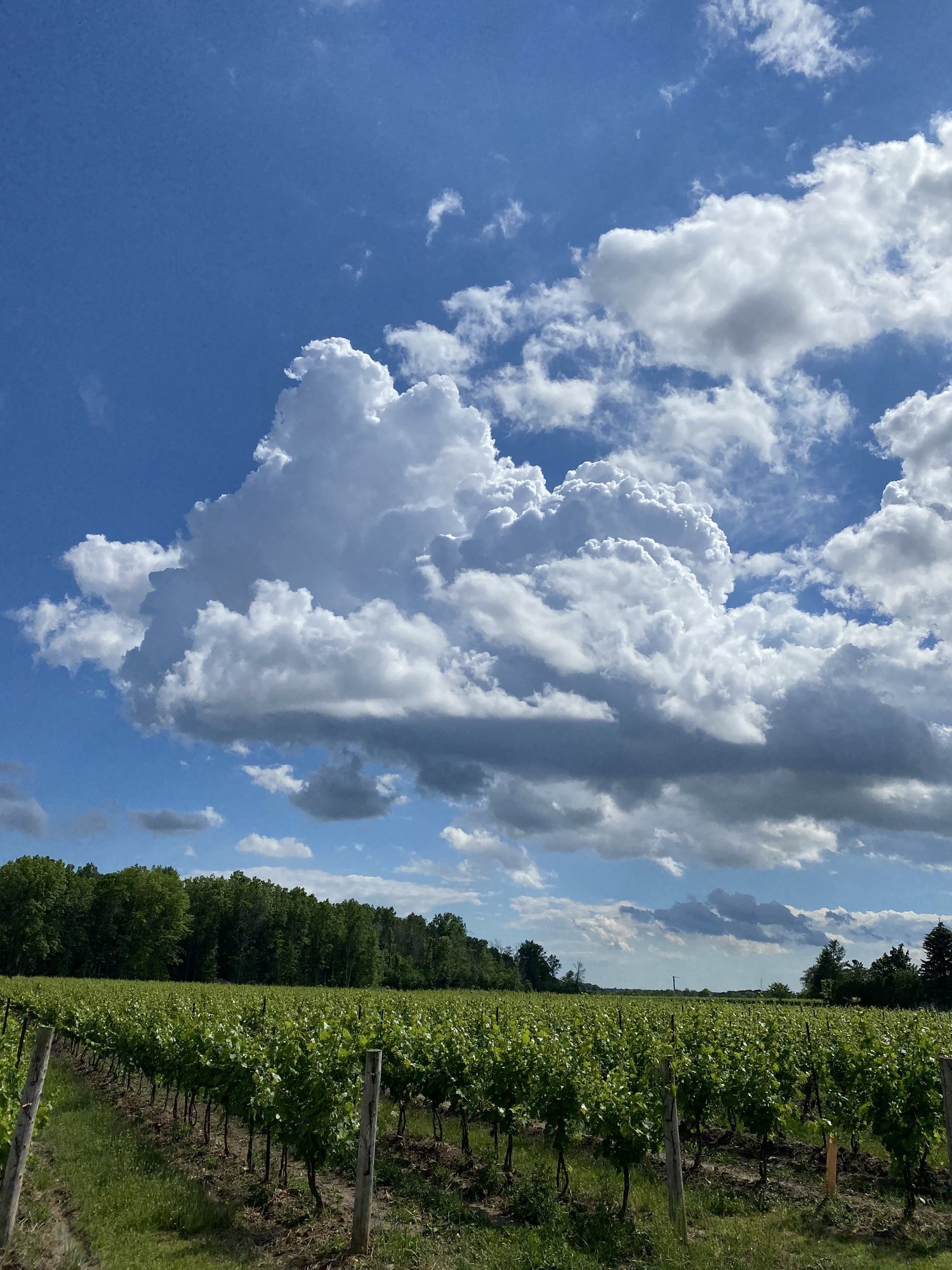VINCENZO DE SIMONE TAKING A SUSTAINABLE & ORGANIC APPROCH
De Simone Vineyards is fully Sustainably Certified, & Organically Certified this includes our winemaking process, vineyard & farming.
What does sustainable mean?
Being sustainable means meeting the needs of the present without compromising the ability of future generations to meet their own needs. It involves using resources responsibly, minimizing waste, and protecting the environment. Sustainability encompasses economic, social, and environmental aspects, aiming to create a balance between these three pillars for long-term well-being and resilience.
Why is it important for wineries to be sustainable?
It is important for wineries to be sustainable for several reasons:
1. Environmental Conservation: Winemaking involves agriculture, and sustainable practices help protect the environment. By implementing practices such as organic farming, water conservation, and biodiversity preservation, wineries can minimize their ecological footprint, reduce soil erosion, and protect natural habitats.
2. Climate Change Mitigation: Climate change poses significant challenges to the wine industry, affecting grape quality and vineyard ecosystems. Sustainable wineries focus on reducing greenhouse gas emissions, adopting renewable energy sources, and implementing carbon offset initiatives. These actions help mitigate the industry's contribution to climate change and build resilience against its impacts.
3. Preservation of Terroir: Terroir refers to the unique characteristics of a wine region, including soil composition, climate, and local ecosystems. Sustainable wineries prioritize the preservation of terroir by implementing practices that maintain soil health, biodiversity, and natural water sources. This ensures that the wines produced reflect the authentic flavors and qualities of their specific regions.
4. Conservation of Water Resources: The winemaking process requires significant amounts of water, and sustainable wineries focus on water conservation and responsible usage. By implementing efficient irrigation systems, wastewater management practices, and water recycling methods, wineries can reduce their water consumption and minimize their impact on local water sources.
5. Social Responsibility and Community Engagement: Sustainable wineries prioritize social responsibility by engaging with local communities, supporting fair labor practices, and contributing to the economic development of the region. They often collaborate with local farmers, employ local workers, and participate in community initiatives, fostering positive relationships and contributing to the well-being of the community.
6. Consumer Preference and Market Demand: Consumers are increasingly conscious of sustainability and seek out products that align with their values. Wineries that prioritize sustainability can attract environmentally conscious consumers, enhance their brand reputation, and gain a competitive edge in the market.
By embracing sustainability, wineries can not only minimize their environmental impact but also contribute to the long-term success and resilience of the wine industry as a whole.
LOOK FOR THIS LOGO
The Sustainable Winegrowing Ontario (SWO) Certified logo assures consumers that the complete grape to glass cycle is sustainable – that the grapes are grown and the Ontario VQA wine is crafted with sustainability at the forefront of each winery and vineyard’s business philosophy. Look for this logo on Ontario VQA wine from SWO Certified wineries.
For more info on Sustainable or becoming sustainable visit link below
Wine corks
Vincenzo De Simone a first to use beeswax corks, specifically those from a company called Diam. Vincenzo, has been using Diam Corks since 2017 vintage, and is proud to be supporting such an amazing product especially the Origin series.
Firstly, beeswax is a natural and sustainable material. It is harvested from beehives without causing harm to the bees or the environment. By using beeswax corks, we can reduce our reliance on synthetic materials that may have negative impacts on the planet.
Secondly, beeswax corks offer excellent sealing properties. The wax creates a tight seal between the cork and the bottle, preventing oxygen from entering and preserving the quality of the contents. This is crucial for wines and other beverages that rely on proper aging and preservation.
Additionally, beeswax corks have been found to be less prone to taint or contamination compared to traditional cork stoppers. This ensures that the flavours and aromas of the beverage remain intact, providing a better drinking experience.
Furthermore, Diam is a reputable company known for its high-quality corks. They have developed a unique process that removes any chemicals or impurities from the cork, resulting in a cleaner and more reliable product. This attention to quality and innovation makes Diam beeswax corks a trusted choice for Vincenzo.
Overall, the use of beeswax corks, particularly those from Diam, is important because it promotes sustainability, ensures proper sealing, minimizes taint, and upholds the quality of the beverage.
Look forward to trying Vincenzo’s wine with these supper cool corks and learn all about his efforts in sustainability.
Visit De Simone Vineyards link in bio!
Vincenzo is the first winery owner in the region to utilizes an ozone machine as a sustainable solution to combat mildew in his vineyard. These machines generate ozone, a naturally occurring gas, which is then dispersed throughout the vineyard. Ozone effectively eliminates mildew by neutralizing spores and inhibiting their growth. This method is sustainable as it avoids the need for harmful chemical pesticides that can negatively impact the environment and human health. Ozone machines also require minimal energy consumption and produce no harmful byproducts, making them an eco-friendly choice for vineyard maintenance. By employing ozone machines, we can effectively prevent mildew while promoting sustainability in our vineyard practices.
No Herbicides!
